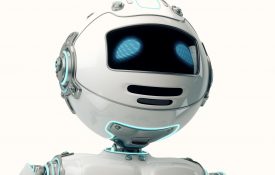-
New Research From Psychological Science
Read about the latest research published in Psychological Science: Emotions in “Black and White” or Shades of Gray? How We Think About Emotion Shapes Our Perception and Neural Representation of Emotion Ajay B. Satpute, Erik Visit Page
-

Robots for Research
From R2-D2 to Astro Boy to WALL-E, science fiction is riddled with diminutive, scrappy robots and androids that serve as sidekicks, assistants, and even heroes. But in the real world, childlike robots are increasingly at Visit Page
-
Cattell Fund to Support Research on Memory, Emotion, Learning
The 2016–2017 James McKeen Cattell Fund Fellowships have been awarded to APS Past Board Member Barbara L. Fredrickson, APS Fellow Aaron S. Benjamin, and developmental psychologist Rachel F. Barr. Presented in partnership with APS, the Visit Page
-
You’re Joking: Detecting Sarcasm in Emails Isn’t Easy
“Well, that meeting was a really fantastic use of my time.” You may want to think twice before hitting send on that email with a sarcastic joke – regardless of whether your boss or your Visit Page
-
Preregistration, Replication, and Nonexperimental Studies
In last month’s column, I worried about whether encouraging us to preregister our hypotheses and analysis plan before running studies would stifle discovery. I came to the conclusion that it needn’t — but that we Visit Page
-
Probing the Moist Crevices of Word Aversion
Scientific American: Warning: this article contains a word that you might find offensive. In fact, some readers might find it so deeply unsettling that they might begin to wonder about the cause of their aversion. Visit Page

